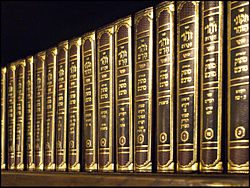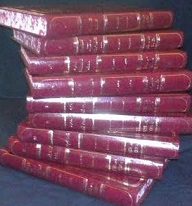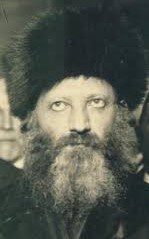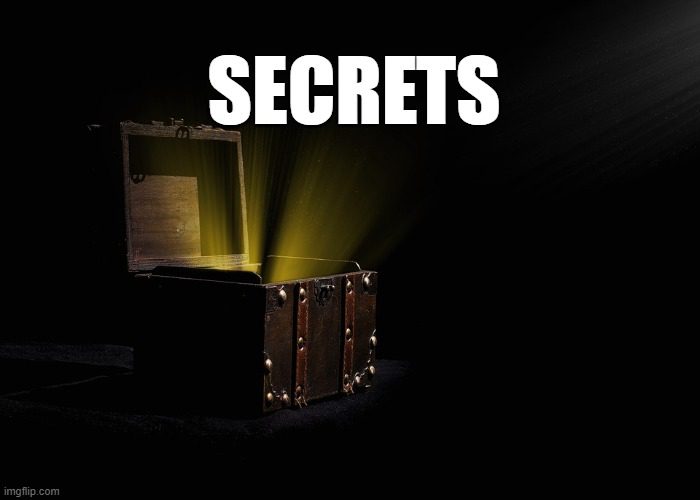Redemption and the Secrets of Torah
By Tzvi Fishman

Our Sages have repeatedly emphasized the necessity of learning the secrets of Torah at the time of Geula.
The holy Zohar teaches:
Rabbi Shimon said: Woe to the man who says that the Torah comes to teach tales of this world and to speak about ordinary affairs. If that were so, even today, we could create a Torah dealing with ordinary matters that would be far superior. If it comes merely to explain the matters of this world, even the princes of the world have more advanced things to say. If so, we should follow them and compose a Torah from their teachings! But this is not the case. For all the words of the Torah are concerned with exalted matters and celestial secrets.
Come and see, the upper world and the lower world are weighed in an exacting balance. Israel here below is mirrored by the angels above. Of the celestial angels it is said, “Who makest His angels spirits” (Tehillim, 104:4). When they descend down to earth, they dress up in the garments of this world, for if they didn’t dress in the garments of this world, they could not exist in this world, nor could the world endure them.
Now, if this is the case with the angels, how much more must it be with the Torah that created them, and that created all of the worlds and that sustains them all. How much more so the Torah in descending to this world had to dress herself up in the garments of this world so that the world could endure.
Thus, the stories of the Torah are only her worldly garments, and whoever thinks that this worldly attire is the Torah itself, and not something deeper, may his soul be obliterated – he will have no portion in the world to come. For this reason, David said, “Open mine eyes, that I may see the wonders of Your Torah” (Tehillim, 119:18), meaning the things that are beneath the Torah’s worldly garment.
Come and see. There are garments that everyone sees. When fools see a man in smart-looking clothing, they don’t look any deeper (but rather judge the worth of the man according to his clothes). However, the pride of the clothes is the body, and the pride of the body is the soul.
In the very same way, the Torah has a body made up of the commandments of the Torah, which are called the body of the Torah . This body is dressed up in garments that are the stories of this world. The fools of the world only see the garment, the worldly narrations. They do not know anything more, nor do they look beneath this outer garment. Those who understand more, do not look just upon the garment, but on the body that is under the garment. The sages, the servants of the exalted King, those who stood on Mount Sinai, peer down to the soul, which is the principle thing of them all, and this is the real Torah. In the future, they are destined to gaze into the soul of the soul of the Torah.
Behold, in the same way, the upper world has a garment, a body, a soul, and an inner soul. The heavens and their hosts are the outer garment. The Community of Israel is the body which houses the soul, “Tiferet Yisrael.” This soul of “Tiferet Yisrael” is the Torah. And the soul of the soul, this is Ancient Holy One. All of these are attached one with the other. Woe to those sinners who say that the Torah is merely a story, who only see its outer garment and no more. Fortunate are the tzaddikim who gaze properly on the Torah. Wine cannot be contained except in a flask. Likewise, the Torah requires an outer garment. Therefore, one needs to look only upon the things that are under the garment. And therefore, all of these ordinary matters and all of these stories are only exterior garments.
 The holy Kabbalist, Rabbi Chaim Vital, foremost student of the Arizal, emphasizes in his introduction to the “Eitz HaChaim,” that the prolongation of the exile, and all of its sufferings, stem from the fact that the inner secrets of Torah have gone unlearned.
The holy Kabbalist, Rabbi Chaim Vital, foremost student of the Arizal, emphasizes in his introduction to the “Eitz HaChaim,” that the prolongation of the exile, and all of its sufferings, stem from the fact that the inner secrets of Torah have gone unlearned.
The Gaon of Vilna writes: “This Geula will only come about through the learning of Torah, and the main factor of the Geula depends on the learning of the Kabbalah” (Even HaShelma, 11:3).
Throughout all of his writings, Rabbi Avraham Yitzhak HaKohen Kook stresses the necessity of learning the secrets of Torah at the time of Israel’s redemption.
 “The revelation of the secrets of Torah in the last generation, in order to purify the hearts and to fill the minds with noble thoughts, whose source lies in the secrets of Torah, this is an absolute necessity in the last generation to insure the survival of Judaism” (Orot HaKodesh, Part 1, Pg. 141).
“The revelation of the secrets of Torah in the last generation, in order to purify the hearts and to fill the minds with noble thoughts, whose source lies in the secrets of Torah, this is an absolute necessity in the last generation to insure the survival of Judaism” (Orot HaKodesh, Part 1, Pg. 141).
In his holy proclamation, “The Great Call,” Rabbi Kook wrote:
“Dear brothers, sages of Torah, and influential scholars! We too acted foolishly and sinned! We studied and researched the sources; we debated the fine points of the Talmud and discovered new insights; we wrote and explained; but we forgot Hashem and His might. We failed to hear the words of the true prophets, the exalted voice of our eternal sages, to hear the voice of the tzaddikim (righteous ones) and hasidim (saintly ones), the sages of Musar, and the possessors of the secrets of Torah, who called out and proclaimed in the most strident of voices, that in the end, the river of Talmudic analysis would turn arid and dry if the deep ocean of Kabbalah, and the Torah’s inner understandings, weren’t constantly drawn into the learning – the waters of the knowledge of Hashem, the pristine waters of pure faith which flows from our inner souls, and which stream forth from our life source” (Orot, pg. 101).
Regarding Eretz Yisrael, Rabbi Kook wrote, “Due to the alienation from the recognition of the secrets of Torah, the recognition of the holiness of Eretz Yisrael is perceived in a unclear manner” (Orot, Eretz Yisrael, 2).
Rabbi Kook sums up this same essay in a similar vein:
“We are not coming to negate any conceptualization or understanding that is founded on honest intellectual endeavor, sensitivity of thought, or the fear of Heaven, in whatever form they take – but rather only the viewpoint that seeks to negate the secrets of Torah and their tremendous influence on the spirit of the nation. This is a tragedy that we must battle against with counsel, wisdom, holiness, and valor” (Ibid.).
Elsewhere in Orot, Rabbi Kook emphasizes the great importance of detailed sexual purity as a necessary foundation for our revival in our land, for the Shechinah will not rest in an unholy place (Orot HaTechiya, 35). In support of his assertion, he quotes verbatim two passages from the Torah:
“When thou goest out to encamp against thy enemies, then keep thee from every evil thing. If there be among you any man that is not clean by reason of an impure emission of semen at night, then he shall go abroad outside of the camp, he shall not come within the camp” (Devarim, 23:10-11).
“For the L-rd thy G-d walks in the midst of thy camp, to deliver thee, and to give up thy enemies before thee; therefore shall thy camp be holy, that He see no unclean thing in thee and turn away from thee” (Devarim, 23:15).
Elsewhere in Orot (Orot HaTechiya, 57), Rabbi Kook stresses the importance of studying the Zohar, as a necessary harbinger of redemption:
“At this moment, the closest time to the final salvation, the voice of the turtledove is heard in our land…the flowers appear on the earth, and the demand of seeking the light of Hashem, of seeking an exalted spiritual redemption, of surging forward toward Hashem and His goodness, progresses and expands.
“Now, the time demands a greater acquisition of the inner Torah, with holy visions that cannot begin to be heard except through the elevation of the soul and the uplifting of its valor in the light of its purest, transcendental life.
“A legion whose hearts have been touched by Hashem, from this Divine camp, this will be for us the power that establishes the foundation of the salvation, the power that grants grace, and the light of life, and the pride of greatness to all manifestations of life at the time of the revival of the nation in Eretz Yisrael. The book of the Zohar, that breaches new paths, forging a way in the desert, a road in the wilderness, it and all of it bounty is prepared to open doors of redemption. ‘Since Israel is destined to taste from the Tree of Life, which is the book of the Zohar, they will be redeemed from the exile with mercy’” (Zohar, Naso, 124b).






